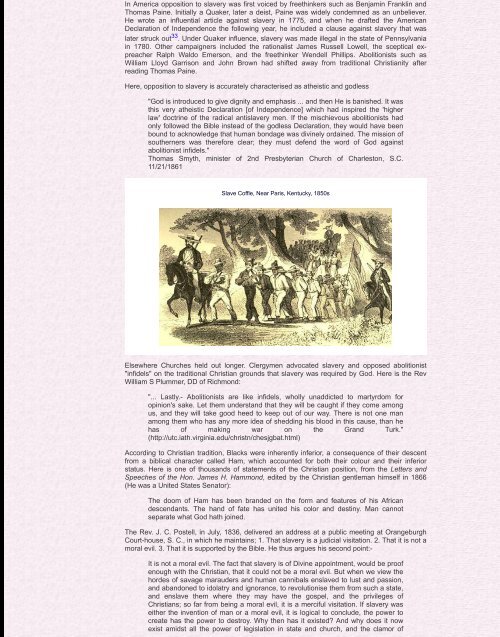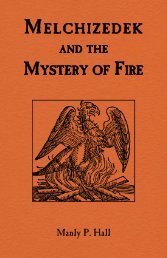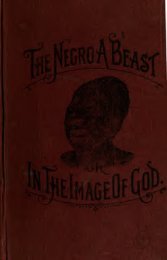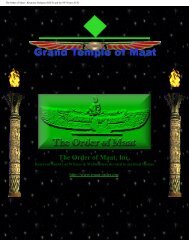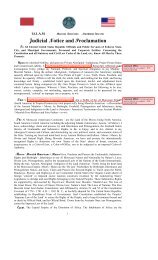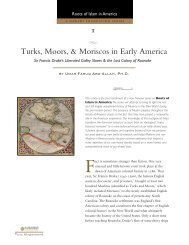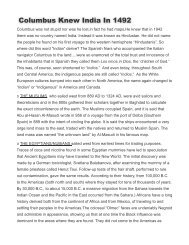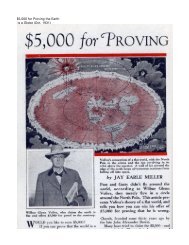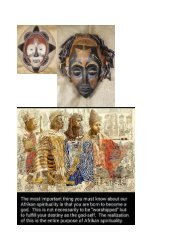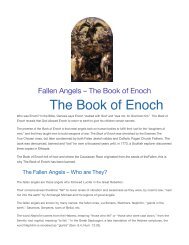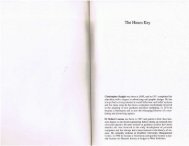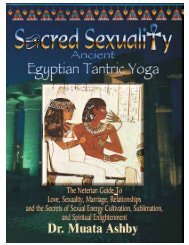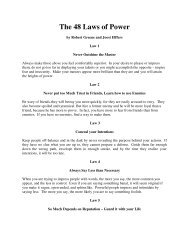Christian Slavery - Bad News About Christianity
You also want an ePaper? Increase the reach of your titles
YUMPU automatically turns print PDFs into web optimized ePapers that Google loves.
In America opposition to slavery was first voiced by freethinkers such as Benjamin Franklin and<br />
Thomas Paine. Initially a Quaker, later a deist, Paine was widely condemned as an unbeliever.<br />
He wrote an influential article against slavery in 1775, and when he drafted the American<br />
Declaration of Independence the following year, he included a clause against slavery that was<br />
later struck out 33 . Under Quaker influence, slavery was made illegal in the state of Pennsylvania<br />
in 1780. Other campaigners included the rationalist James Russell Lowell, the sceptical expreacher<br />
Ralph Waldo Emerson, and the freethinker Wendell Phillips. Abolitionists such as<br />
William Lloyd Garrison and John Brown had shifted away from traditional <strong>Christian</strong>ity after<br />
reading Thomas Paine.<br />
Here, opposition to slavery is accurately characterised as atheistic and godless<br />
"God is introduced to give dignity and emphasis ... and then He is banished. It was<br />
this very atheistic Declaration [of Independence] which had inspired the 'higher<br />
law' doctrine of the radical antislavery men. If the mischievous abolitionists had<br />
only followed the Bible instead of the godless Declaration, they would have been<br />
bound to acknowledge that human bondage was divinely ordained. The mission of<br />
southerners was therefore clear; they must defend the word of God against<br />
abolitionist infidels."<br />
Thomas Smyth, minister of 2nd Presbyterian Church of Charleston, S.C.<br />
11/21/1861<br />
Slave Coffle, Near Paris, Kentucky, 1850s<br />
Elsewhere Churches held out longer. Clergymen advocated slavery and opposed abolitionist<br />
"infidels" on the traditional <strong>Christian</strong> grounds that slavery was required by God. Here is the Rev<br />
William S Plummer, DD of Richmond:<br />
"... Lastly.- Abolitionists are like infidels, wholly unaddicted to martyrdom for<br />
opinion's sake. Let them understand that they will be caught if they come among<br />
us, and they will take good heed to keep out of our way. There is not one man<br />
among them who has any more idea of shedding his blood in this cause, than he<br />
has of making war on the Grand Turk."<br />
(http://utc.iath.virginia.edu/christn/chesjgbat.html)<br />
According to <strong>Christian</strong> tradition, Blacks were inherently inferior, a consequence of their descent<br />
from a biblical character called Ham, which accounted for both their colour and their inferior<br />
status. Here is one of thousands of statements of the <strong>Christian</strong> position, from the Letters and<br />
Speeches of the Hon. James H. Hammond, edited by the <strong>Christian</strong> gentleman himself in 1866<br />
(He was a United States Senator):<br />
The doom of Ham has been branded on the form and features of his African<br />
descendants. The hand of fate has united his color and destiny. Man cannot<br />
separate what God hath joined.<br />
The Rev. J. C. Postell, in July, 1836, delivered an address at a public meeting at Orangeburgh<br />
Court-house, S. C., in which he maintains; 1. That slavery is a judicial visitation. 2. That it is not a<br />
moral evil. 3. That it is supported by the Bible. He thus argues his second point:-<br />
It is not a moral evil. The fact that slavery is of Divine appointment, would be proof<br />
enough with the <strong>Christian</strong>, that it could not be a moral evil. But when we view the<br />
hordes of savage marauders and human cannibals enslaved to lust and passion,<br />
and abandoned to idolatry and ignorance, to revolutionise them from such a state,<br />
and enslave them where they may have the gospel, and the privileges of<br />
<strong>Christian</strong>s; so far from being a moral evil, it is a merciful visitation. If slavery was<br />
either the invention of man or a moral evil, it is logical to conclude, the power to<br />
create has the power to destroy. Why then has it existed? And why does it now<br />
exist amidst all the power of legislation in state and church, and the clamor of


